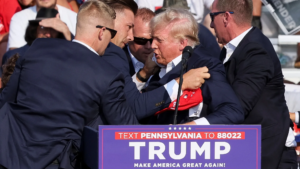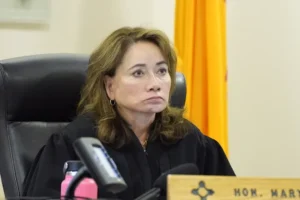Latest News on the French Elections: A Crucial Turning Point for the Nation


Outline: Latest News on the French Elections
Introduction
- Overview of the election’s significance
- Key parties and candidates involved
- Public interest and voter turnout expectations
Campaign Developments
- Recent campaign events and rallies
- Major policy proposals from leading candidates
- Key endorsements and their impact
Candidates’ Profiles
- Backgrounds of the main candidates
- Political platforms and visions
- Strengths and weaknesses of each candidate
Election Issues
- Economy and job creation
- Immigration and national security
- Climate change and environmental policies
- Education and healthcare reforms
Public Opinion
- Latest polls and voter sentiment
- Key demographics and voting trends
- Public debates and media coverage
Potential Outcomes
- Scenarios based on current polls
- Possible coalitions and alliances
- Implications for France’s future policies
International Reactions
- How the election is viewed globally
- Reactions from key international leaders
- Potential impact on international relations
Conclusion
- Summary of key points
- Importance of the election for France and beyond
- Anticipation for election day and results
Article: Latest News on the French Elections
Introduction
The French elections are drawing global attention as the nation prepares to vote in one of the most consequential elections in recent history. With a highly polarized political landscape and numerous pressing issues, the election’s outcome will shape France’s future and its role on the world stage. Key parties and candidates are making their final pushes to sway undecided voters, and public interest is at an all-time high.
Campaign Developments
Recent Campaign Events and Rallies
In the final stretch of the campaign, major events and rallies have been held across the country. Leading candidates have been crisscrossing France, attending town halls, debates, and public gatherings. These events have been pivotal in energizing supporters and addressing key concerns from the electorate.
Major Policy Proposals from Leading Candidates

Candidates have laid out their visions for France, with policy proposals focusing on economic recovery, immigration, national security, climate change, and social reforms. The debate over how to address these issues has been intense, with each candidate presenting distinct approaches and solutions.
Key Endorsements and Their Impact
Endorsements from prominent figures and organizations have played a significant role in shaping the campaign. These endorsements are seen as crucial for gaining credibility and support among various voter demographics. They have also contributed to shifting public opinion in the weeks leading up to the election.
Candidates’ Profiles
Backgrounds of the Main Candidates
The main candidates in the election come from diverse backgrounds, including political veterans and newcomers. Each candidate brings a unique perspective and set of experiences to the table, influencing their political platforms and appeal to voters.
Political Platforms and Visions
From economic reforms to environmental policies, the candidates’ platforms reflect their visions for France’s future. Some focus on liberal economic policies and reducing taxes, while others emphasize social welfare and environmental sustainability.
Strengths and Weaknesses of Each Candidate
Voter perception of each candidate’s strengths and weaknesses varies widely. Key factors include political experience, public speaking abilities, policy knowledge, and personal charisma. These elements are crucial in determining voter trust and support.
Election Issues
Economy and Job Creation
Economic recovery post-pandemic is a top priority, with candidates proposing various strategies to stimulate growth, create jobs, and support businesses. Debates have centered on tax policies, labor laws, and support for innovation and technology.
Immigration and National Security
Immigration and national security remain hot-button issues, with candidates offering different solutions to manage borders, integrate immigrants, and address security threats. These topics are highly polarizing and have significant influence on voter decisions.
Climate Change and Environmental Policies
Environmental sustainability is a major concern for many voters. Candidates have proposed a range of policies to tackle climate change, from investing in renewable energy to implementing stricter environmental regulations.
Education and Healthcare Reforms
Education and healthcare reforms are also critical issues. Candidates have outlined plans to improve the quality and accessibility of education and healthcare services, addressing systemic challenges and ensuring equitable access for all citizens.
Public Opinion
Latest Polls and Voter Sentiment
Recent polls indicate a tight race, with no clear frontrunner. Voter sentiment is divided, reflecting the polarized nature of the electorate. Undecided voters and key demographics are expected to play a decisive role in the final outcome.
Key Demographics and Voting Trends
Voting trends show significant differences across age groups, regions, and socioeconomic backgrounds. Young voters, urban residents, and rural populations have distinct preferences and concerns, shaping their support for different candidates.
Public Debates and Media Coverage
Public debates and media coverage have been instrumental in informing and influencing voters. These platforms have allowed candidates to present their views, challenge opponents, and connect with the electorate.
Potential Outcomes
Scenarios Based on Current Polls
Based on current polls, several scenarios are possible, including a runoff between the top two candidates. The fragmented nature of the electorate suggests that alliances and coalitions may be necessary to form a stable government.
Possible Coalitions and Alliances
Potential coalitions and alliances are being discussed as candidates prepare for the possibility of a divided result. These alliances could shape the policy direction and stability of the future government.
Implications for France’s Future Policies
The election’s outcome will have significant implications for France’s future policies, including economic management, social reforms, international relations, and environmental strategies. The direction chosen by the electorate will determine the country’s path forward.
International Reactions
How the Election is Viewed Globally
Globally, the French election is being closely watched. France’s role in the European Union and its international alliances make the election’s outcome crucial for global politics and economics.
Reactions from Key International Leaders
Key international leaders have expressed interest and concern regarding the election. The policies of the new French administration will impact international relations, trade agreements, and cooperative efforts on global issues.
Potential Impact on International Relations
The election’s result could lead to shifts in France’s foreign policy, affecting its relationships with major powers and neighboring countries. Changes in diplomatic priorities and trade policies are expected based on the new administration’s approach.
Conclusion
The French elections are a pivotal moment for the country, with significant implications for its future. As candidates make their final appeals and voters prepare to cast their ballots, the world watches with keen interest. The outcome will shape not only France’s domestic policies but also its role on the global stage. With anticipation building for election day, the stakes could not be higher.





